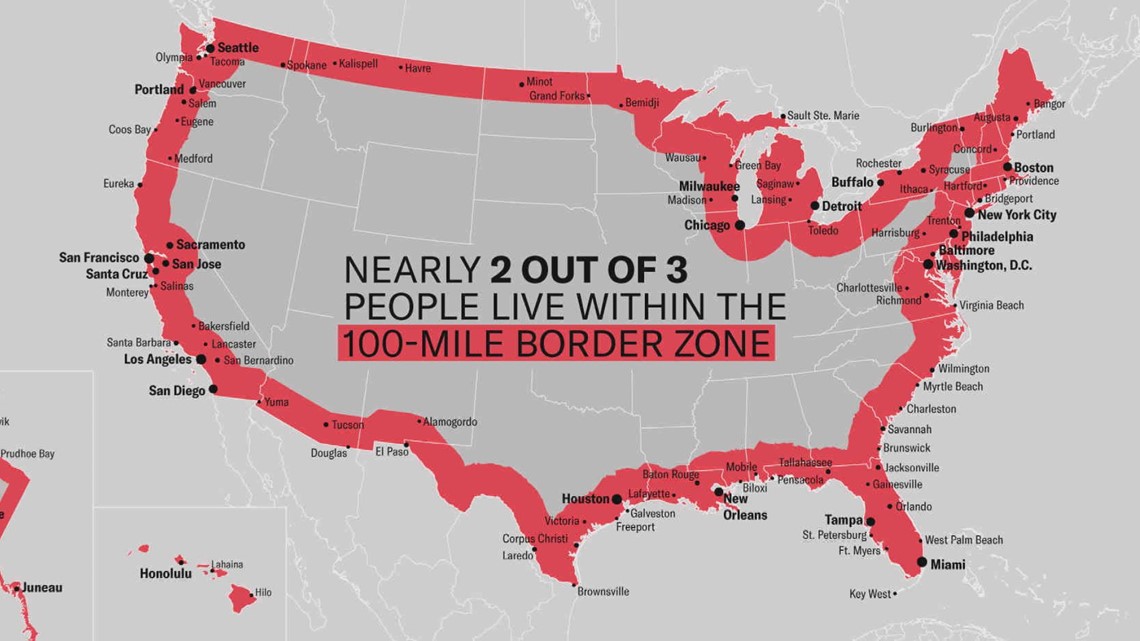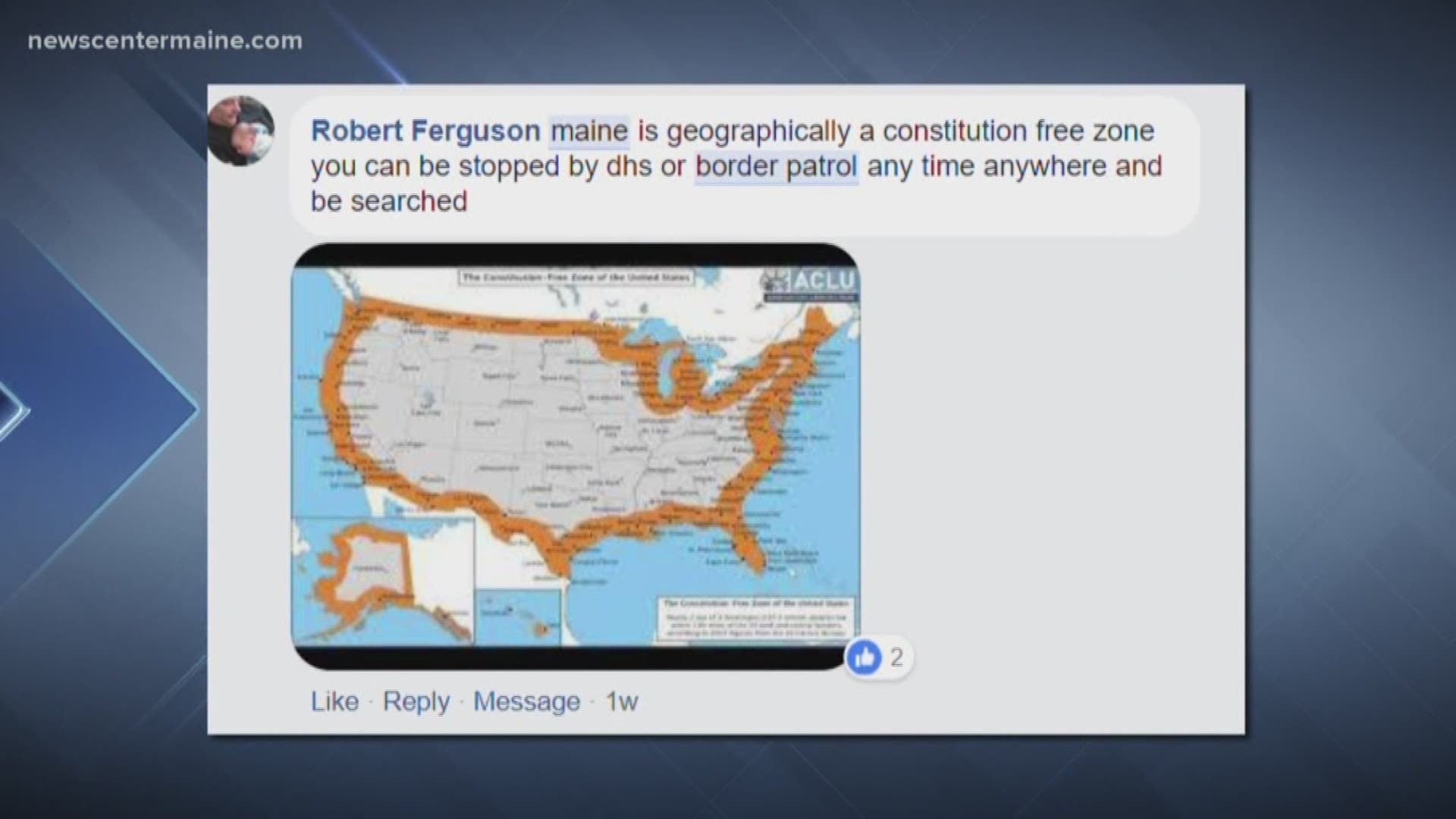(NEWS CENTER Maine) - In response to viral videos of border patrol agents at Maine bus stops and on the turnpike, the debate surrounding immigration checks in our state is murkier than ever. Groups like the ACLU and the Immigration Legal Advocacy Project say Customs and Border Protection checks and arrests are on the rise in Maine.
Border Patrol, however, says it hasn't changed its practices in any way. Rather, a spokesperson said there is a "hyper-sensitivity" regarding Border Patrol and ICE presence - and that people are quick to notice uniforms or cars. "It could be anything from one of our agents going to a meeting to meet with our law enforcement partners to an agent on his way to a training at one of our training facilities across the United States and he's driving there," said Division Chief Dennis Harmon.
You've likely seen this map - showing the "100 Mile Border Zone" around the country's perimeter.


This is an area where Border Patrol's activity is more prominent, and the rules governing what CBP (Customs and Border Protection) can do change slightly.
The 100 Mile Zone encompasses the entire state of Maine. While you may live 'inland' in the Pine Tree State, you are not exempt from Border Patrol Activity.
"We look at 100 air miles from the international border as where we can set up our traffic checkpoint," said Division Chief Dennis Harmon from Border Patrol's Houlton Sector.
The fact that the 100 Mile Zone exists is not up for debate - but it's what happens within this zone that has border patrol split with immigration activists.
According to Division Chief Harmon, the 100 Mile Zone allows CBP to set up checks along public highways like I-95. He also says it allows agents to search "vessels" - cars, busses, planes, etc. - with reasonable suspicion of illegal activity, but without a warrant.
He says this rule was upheld in a 1976 Supreme Court Case: US vs. Martinez-Fuerte. The ruling says, "We hold that stops for brief questioning routinely conducted at permanent checkpoints are consistent with the Fourth Amendment, and need not be authorized by warrant."
The ACLU of Maine says Border Patrol is misinterpreting the ruling, and that it applies narrowly to permanent immigration checks, not ones like CBP conducts on Maine highways. "The Constitution still applies," said Staff Attorney Emma Bond. "The Fourth Amendment still applies. All people have the right against unreasonable searches or seizures, even in the 100-mile zone."
Regardless of the debate surrounding practices in the 100 Mile Zone, CBP operates on its belief: that it has the right to search people's cars or public transportation if it has reasonable suspicion of illegal activity.
The ACLU says it is suing CBP for a number of its practices, including its refusal to release public documents.
A Vermont Senator recently proposed legislation to decrease the size of the zone to 25 miles.

